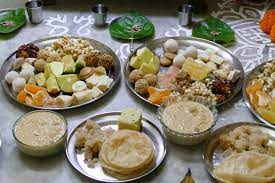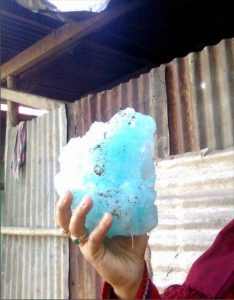Sindhu Bhattacharya of First Post reports the Indian Railways has blamed the passengers of Tejas Express for falling sick after eating food served on board.
 Yes, without batting an eyelid, the world’s largest transporter has thought it fit to shrug off the embarrassment of having two dozen passengers down with food poisoning by conveniently saying their own doings – and the food that they were carrying – is to blame for the fiasco.
Yes, without batting an eyelid, the world’s largest transporter has thought it fit to shrug off the embarrassment of having two dozen passengers down with food poisoning by conveniently saying their own doings – and the food that they were carrying – is to blame for the fiasco.
According to media reports, some of which quote a report by a three-member Central Railway Enquiry Committee, some children vomiting inside one coach could also be the culprits. Though how would 24 passengers suffer food poisoning if some kids threw up, remains a mystery.
Specially, since the kids who threw up were all in one coach, according to an IRCTC official we spoke to. This official also confirmed that passengers who fell sick were in different coaches, not all were in the same coach as the kids. Besides vomiting children, the Railways also wants to pin the blame on some fish that a group of Kolkatans was reportedly carrying, which stank, lead the kids to vomit and thereby somehow induced food poisoning in two dozen passengers.
This DNApiece is headlined “Not bad eggs or other food items, Hilsa caused food poisoning on Tejas Express” and goes on to say that in the report (on the food poisoning incident), the Central Railway has asserted “there was nothing wrong with the breakfast served to passengers. It has found that smell from stale fish had caused some children to vomit, triggering a similar response from other passengers. Some were taken ill after they consumed the fish.” It is not clear if the paper was in possession of the report or the entire piece has been strung together on source-based information. It is also not clear why anyone would carry stale fish, more than a fortnight old.
The Hindusays the samples collected for testing after the food poisoning incident were all packaged food items including soup powder, cake and mango punch. “However, the Railway authorities didn’t test the sample of the omelette that reportedly had a foul smell, as per its own inquiry report.” Why the omlettes or eggs were not tested is not known. The Hindu report goes on to add from the enquiry report of the Railways that “a few passengers complained of slightly different smell from omelette served to them. Quality of omelette may be ensured while serving.”
 Sources in the district administration said more than 250 people were invited to the house of one Mahesh Koda for Satyanarayan Katha on Monday evening. After consuming the prasad, most of the villagers complained of an upset stomach, dizziness and vomiting.
Sources in the district administration said more than 250 people were invited to the house of one Mahesh Koda for Satyanarayan Katha on Monday evening. After consuming the prasad, most of the villagers complained of an upset stomach, dizziness and vomiting.








